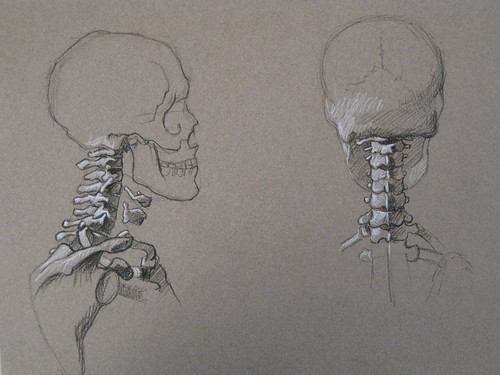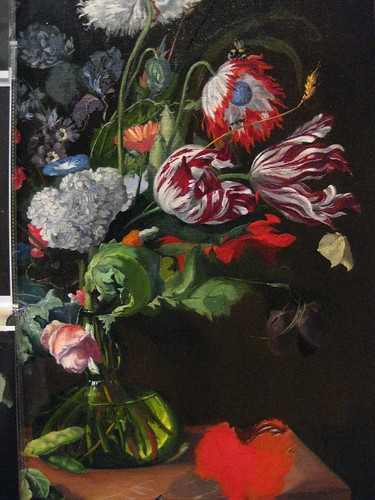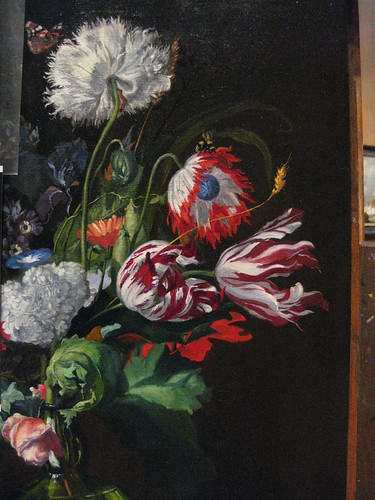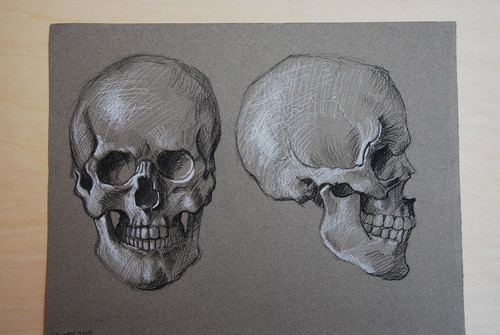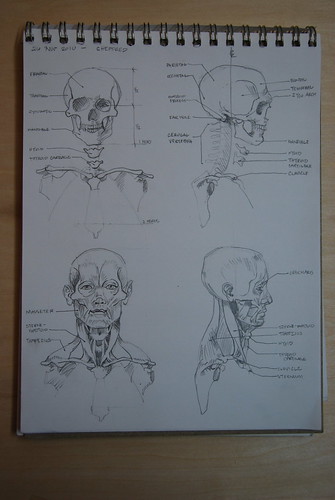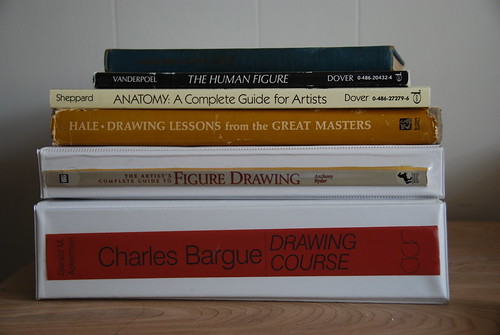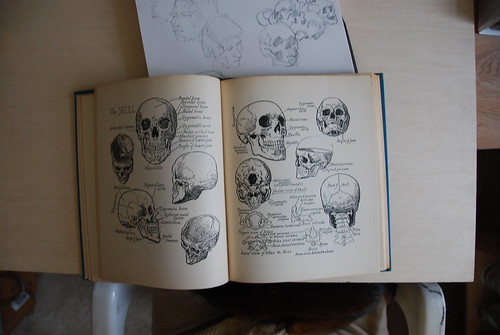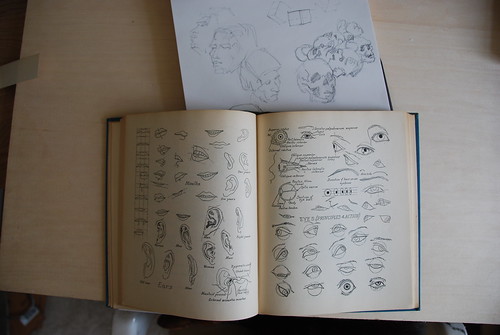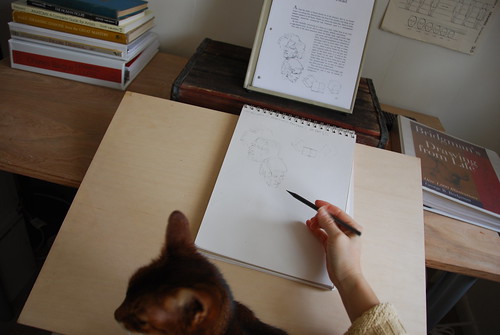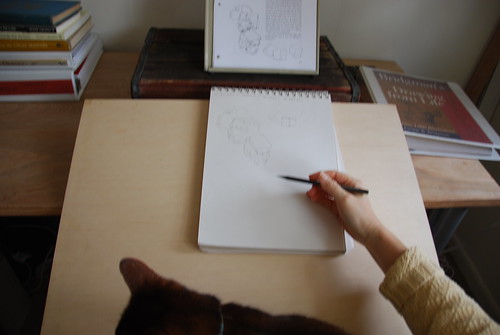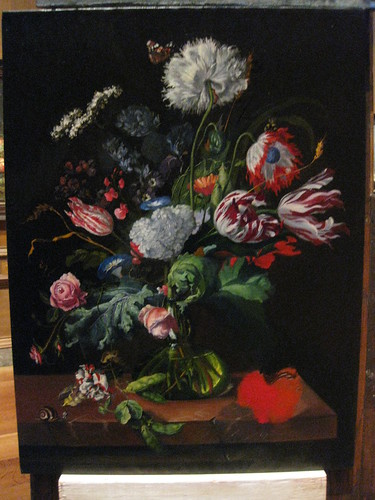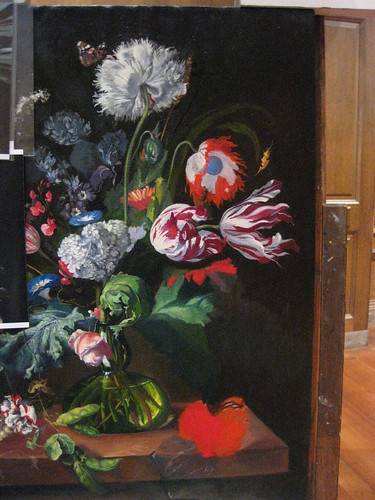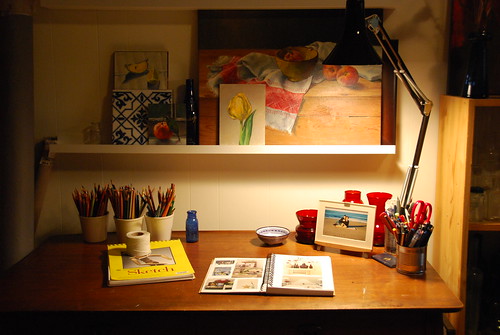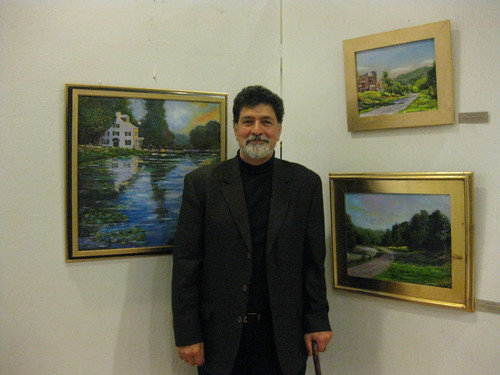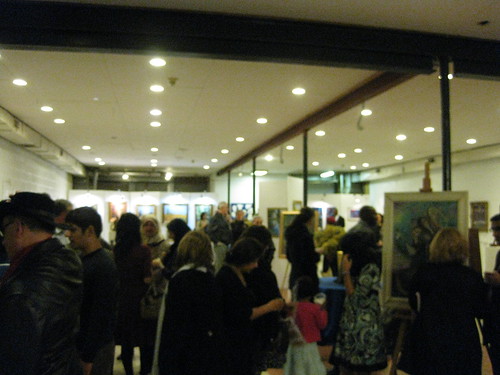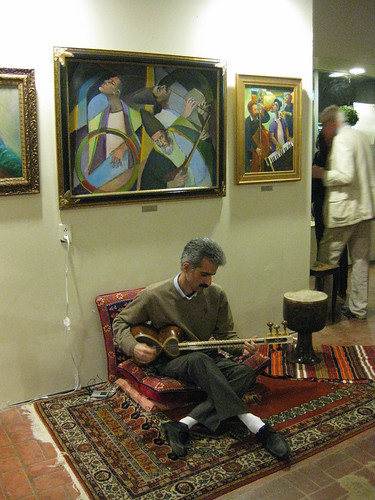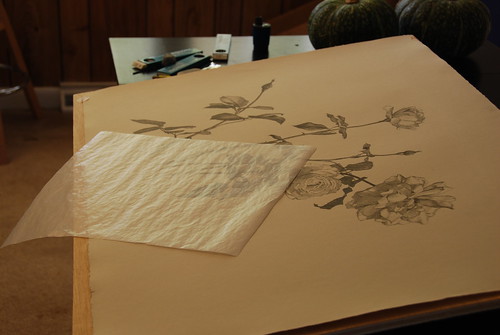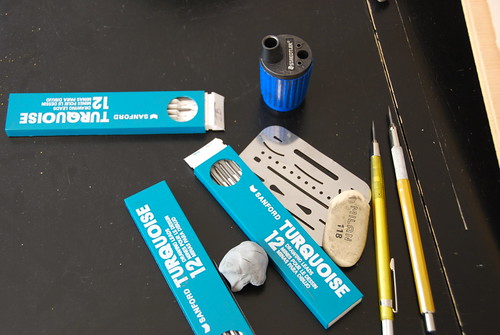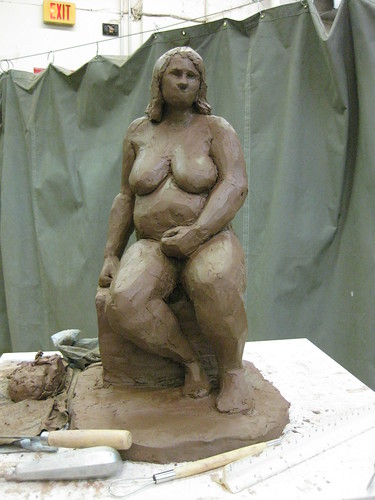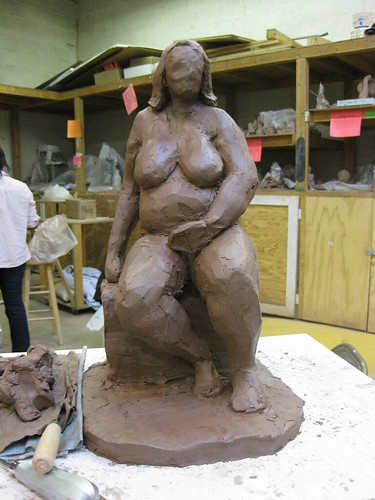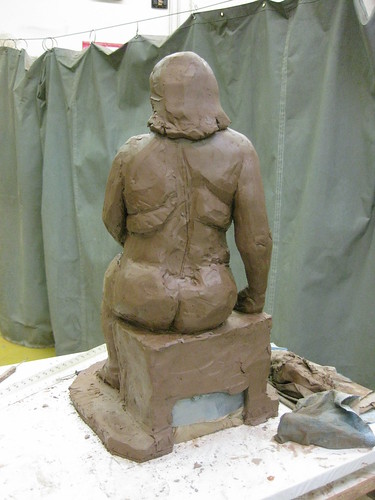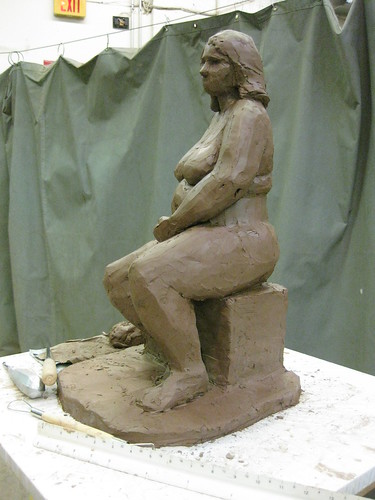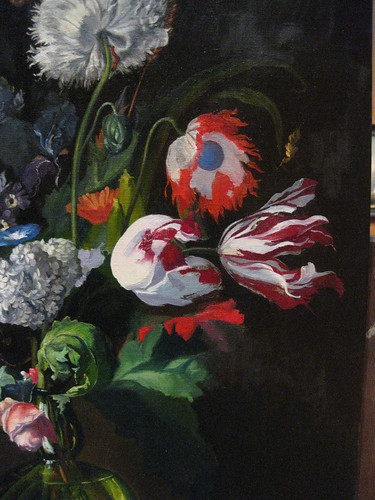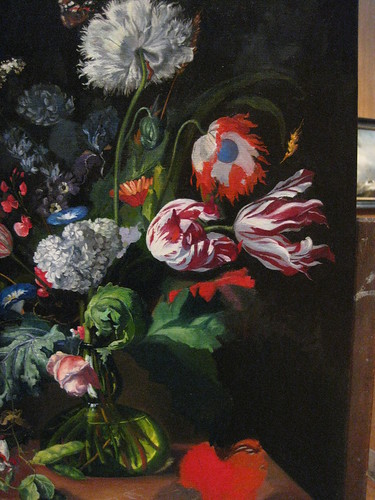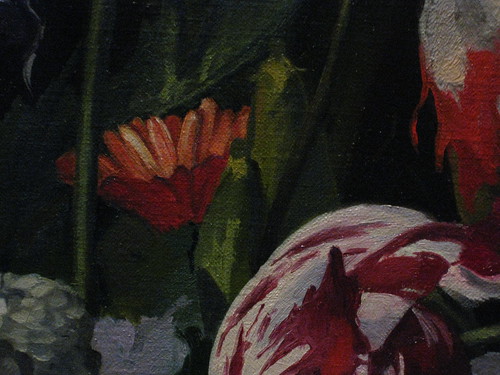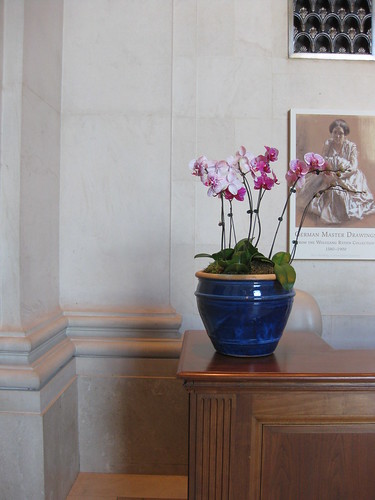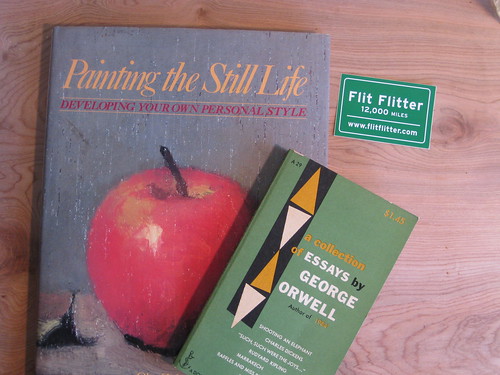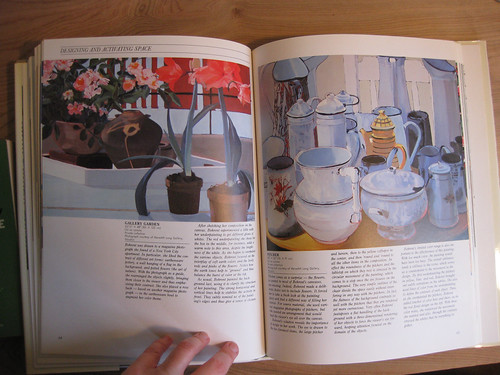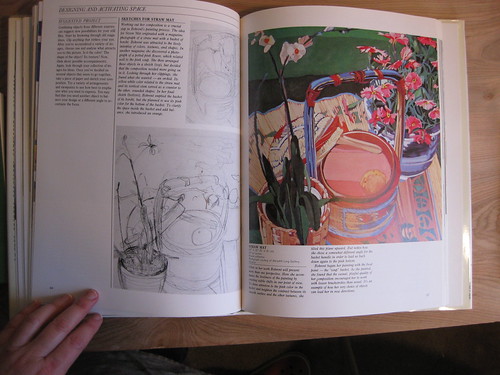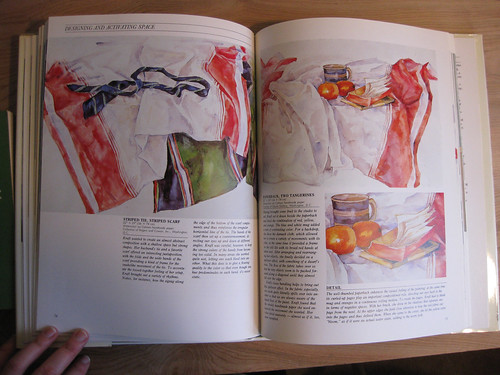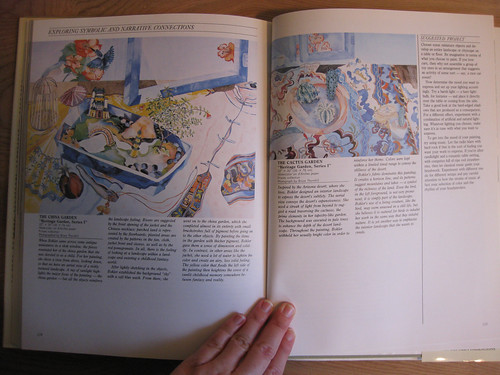More organizing went on this week...
On Tuesday's I attend class all day {9:30am to 6:30pm} and usually I am beat by the end of the day, this week after having a quick dinner I was eager to dive in and begin giving reason and method for how I store my supplies. The organization process continued onto today with the main brunt of the work being completed on Wednesday.
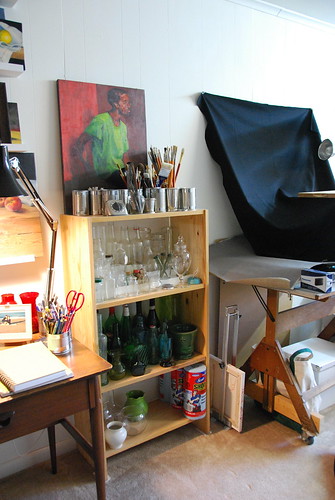
{clear glass, blue and green bottles and vases, and shop towels}
Next to my desk I moved in a simple book shelf to house the variety of clear and colored glass bottles I have been collecting over the past few years. I am also keeping an incomplete portrait on its top shelf to remind me that I need to get back to this painting and finish it.
This year I began to gather tin cans as containers for holding paint brushes and palette knives, I have also found they work great for holding solvent when I do not want to use the
silicoil jar. The nearby drafting table has become a still life stand.
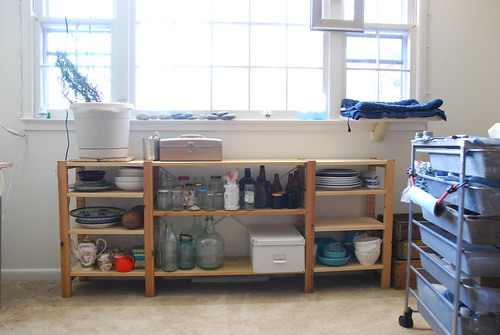
{under the window}
Another shelf full of various dishware and bottles, including my brown bottle collection which has the two Chimay bottles from my last day of work as an architect lunch! That had to be the best day of my life, saying goodby to a career that had always been an emotional struggle to enjoy and embarking on my new life as a full time artist!
My
taboret is from the container store and it has rolling wheels making it a lifesaver because of its flexibility.
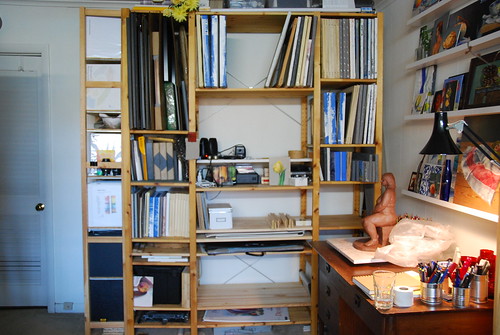
{the big shelving unit in the back of the studio}
This is what took up most of my time this week. I took everything off of this Ikea shelving unit and started from scratch, before sorting all the items, every shelf was overflowing, and I had a lot leaning against the front of it also. When things get disorganized, you need more space. I decided to sort the shelves by what they hold and to also assign shelves to what canvas size will fit. This helped me condense some of the shelves to free up shelves for the future. {I added specific notes to this
photo on flickr}
On the far left shelves are binders dedicated to
tear sheets, printed out open source books, and other art reference materials. I prefer to read things on paper and to highlight important and pertinent ideas, so the more important websites will sometimes get printed out for future reference and then are stored in these binders.
Here are a few links to what is in the binders:
.
Painting in France.
Elements of Drawing.
Drawing and Engraving.
Water and Light.
Handprint
